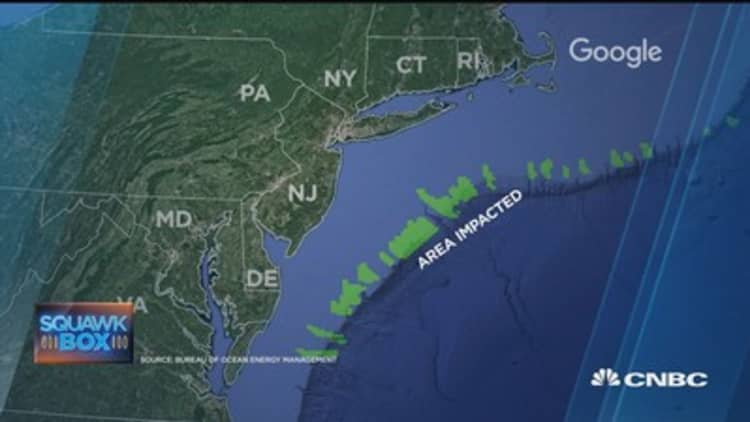
President Barack Obama's move to block parts of the Arctic and Atlantic from oil and gas drilling could disrupt some of his successor's high-profile energy plans.
Donald Trump has vocally touted his wish to boost fossil fuel production on government lands, and shortly after Obama's announcement, energy industry allies claimed Trump can brush aside the action once he takes office. But others point out that the law that Obama cited does not provide Trump a path forward, and congressional Republicans may not have the time to do anything about it either.
Obama's action, the most-far reaching use of presidential power under the Outer Continental Shelf Lands Act, also moves the issue of drilling in sensitive areas into the court of public opinion, potentially creating a public relations challenge for Trump.
Environmental groups and congressional Democrats had encouraged Obama to exercise his authority to withdraw lands of the Outer Continental Shelf from future lease sales. They point out that there is no provision in the law that allows the incoming president to reverse the action.
U.S. Outer Continental Shelf
The American Petroleum Institute, an industry group, countered that, saying George W. Bush proved that an override is possible when he used a memorandum to end Bill Clinton's temporary moratorium on drilling in much of the Outer Continental Shelf ahead of schedule.
In any case, Trump is likely to try to rescind the decision, but that action will probably face legal challenges, perhaps by environmental groups, said David Konisky, associate professor at the Indiana University School of Public and Environmental Affairs. It could take the courts multiple years to deliver a decision, he added.
The Trump transition team did not immediately return a request for comment.
Congress is also unlikely to resolve the issue immediately by changing the law, Konisky said. That's partly because there is little urgency to begin exploration projects in the harsh Arctic and the undeveloped Atlantic waters, given that oil prices remain mired in a more than two-year slump.
But it's also due in part to Congress' busy legislative schedule. With a Republican in the White House, the GOP is prioritizing hallmark issues like repealing and replacing Obamacare, rolling back financial regulations and cutting taxes. Its faces deadlines under the Congressional Review Act to reverse Obama-era regulations.

The American Petroleum Institute claims Obama's action conflicts with the purpose of the law, which is to make the Outer Continental Shelf "available for expeditious and orderly development."
"One of the recurring themes in the act is that Congress is telling the Department of the Interior that you need to continually cull our resources," said Christopher Guith, senior vice president for policy at the U.S. Chamber of Commerce's Energy Institute.
"Permanency doesn't exist anywhere in the act for that reason," Guith said. He noted that, unlike environmental groups, the president didn't use the word "permanent" to describe his action, presumably because the law does not expressly provide the authority for a permanent drilling ban.
Obama said he withdrew the land from future leases in part due to the challenges of cleaning any major oil spill in the Arctic. In doing so, he potentially laid the groundwork for a defense on the basis of safeguarding the environment.
In making the move, Obama likely considered where public opinion on the environment now rests — and where it's likely to be in the future, according to Konisky. Americans tend to support limits on oil and gas when the resource in question is located in a sensitive area, he said.
"This is an easier sell for the American public than the other argument," he said. "You're putting the impetus on the other side to make [its] case."


